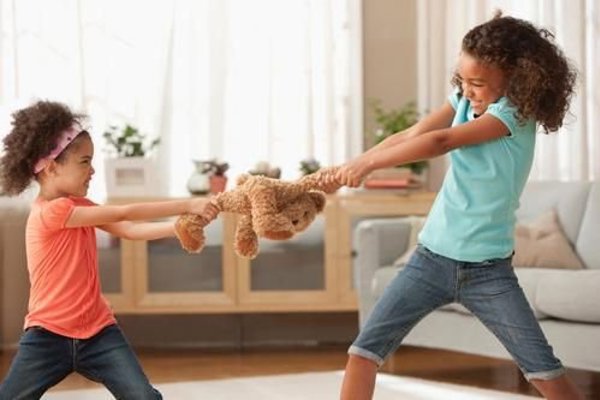6 Ways to Stop Sibling Squabbles

It’s a difficult transition bringing a newborn home, especially when you have an older child that now has to fight for your attention. As your kids grow up and bond, the jealousy starts to disappear. Still, there will always be a bit of “sibling rivalry” between your children as they fight for a sense of significance in the family.
One of the facts of life is that siblings will fight—it’s perfectly natural! Sibling squabbles are important for shaping family dynamics and creating strong sibling relationships.
Still, some fights go too far. As a parent, you play judge and jury. How do you stop sibling squabbles (sometimes before they even happen)?
Make your kids feel important
When you bring home your new baby, your older child will likely feel ignored and unimportant because newborns need so much attention. Be proactive about your kids’ fragile feelings and make them feel important. Plan a special activity just for them or assign them an important task. If your child still acts out, remind them of the rules in a comforting way to help them understand their feelings.
Focus on each child’s needs
Teach your children to express themselves and their needs. Simply asking them, "What do you need?" can help children to worry less about their sibling and more on their personal needs. This will reduce conflict between siblings and help them express themselves.
Gently remind them of rules
In the aftermath of a sibling fight, gently remind them of the rules. Empathize with their feelings, but be firm. If your children get into a physical fight, separate them first and then use phrases like, "I know you're upset but we never hit" and "Use your words, not your fists."
Help your kids express themselves
Siblings share a lot of things, which makes it hard for them to feel significant. Give your children chances to express themselves whenever you can so they can feel like they have more control and be less likely to lash out at their brother or sister.
Include them in the rules
Giving your children a say in the rules will help them feel more responsible. This is especially important when your children share things, such as a room, toy, bike, computer, etc. That way, they will be held accountable—which will make them more inclined to follow the rules.
Let them work it out
It's hard to take a step back, but letting your children work out their problems will improve their conflict resolution skills. Teach your children how to solve conflicts in a peaceful and effective way. This will prepare them for success in their relationships at home as well as in the future.
Using these steps, you can help keep the peace at home and guarantee that your children maintain strong relationships for years to come.
By Caitlin Lancaster with expert advice from Michelle Salcedo, M. Ed., Sunshine House Chief Academic Officer